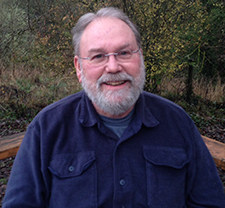If exclusion is a state of mind, so is inclusion. Our problem as the most disrespected minority is simple, yet daunting: how to overthrow the universal misconception that the lives of people with disabilities are less valuable, and in some cases, even expendable. But how do we uproot and destroy a negative view of an entire class of people that has been entrenched in the human psyche for millennia?
The honest answer: The best we can hope for may be incremental change. Total eradication of stereotypical thinking and discrimination is unlikely. Why? Because human beings are very good at denial, compartmentalized thinking, and ignoring the other person’s plight.
So how does real change happen? When families are confronted in a personal way with the reality of disability, their point of view begins to change — from the inside out. Suddenly those closest to the newly disabled loved one are involuntarily enrolled in a crash course in Understanding Disability.
The Ruderman family went through a similar process on their way to becoming powerful and effective advocates for people with disabilities. Jay Ruderman, president of the nonprofit Ruderman Family Foundation, explains it this way: “Our first major philanthropic investment was in Jewish day schools in Boston. As we got involved, we became aware that children with disabilities were excluded in the school system. After that, my brother had a child with autism. And then my dad, who passed away in 2011, had a disease that diminished his lung capacity and gradually weakened him. Those personal experiences made the issue of disability more real to my family.”
Jay took over running the foundation in 2008, and with his background as an assistant district attorney passionate about civil rights, he was perfectly positioned to change the foundation’s focus and “go narrow and deep” in the battle against disability discrimination. “I realized that the organizations we supported weren’t doing it like we wanted, so we started our own advocacy efforts and began doing what we call rapid response advocacy.”
He cites examples: “When Donald Trump mocked a disabled reporter, the foundation spoke out immediately and got wide coverage. When Air France refused to fly a passenger in a wheelchair, we contacted the airline right away and put pressure on them.” Then came the “disability snuff film” Me Before You, with the Ruderman Foundation calling out Warner Brothers right alongside our most ardent disability advocates.
Now comes something new: Ruderman white papers published and circulating widely, covering hot topics like police brutality (a large percentage of those killed unjustly are disabled mentally or emotionally). In our current issue, Allen Rucker cites the Ruderman white paper, “On Employment of Actors With Disabilities in Television,” written by Danny Woodburn and Kristina Kopić.
This kind of multi-pronged, immediate advocacy is starting to chip away at the most stubborn kind of discrimination that is embedded deep in the human psyche. Most encouraging, the advocacy effort is born of real commitment and devotion and is alive and well and growing — not only in the Ruderman Family Foundation, but throughout the disability community
Support New MobilityWait! Before you wander off to other parts of the internet, please consider supporting New Mobility. For more than three decades, New Mobility has published groundbreaking content for active wheelchair users. We share practical advice from wheelchair users across the country, review life-changing technology and demand equity in healthcare, travel and all facets of life. But none of this is cheap, easy or profitable. Your support helps us give wheelchair users the resources to build a fulfilling life. |



Recent Comments
Bill on LapStacker Relaunches Wheelchair Carrying System
Phillip Gossett on Functional Fitness: How To Make Your Transfers Easier
Kevin Hoy on TiLite Releases Its First Carbon Fiber Wheelchair